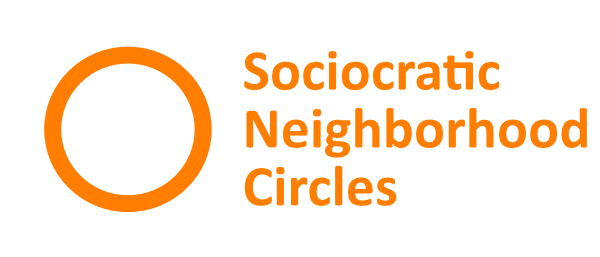City Biotope City is part of this European Strategic Partnership
SoNeC (SOciocratic NEighborhood Circles) is a 26 month-long Erasmus+ project – funded by the EU’s “KA2 – Cooperation for innovation and the exchange of good practices / KA204 – Strategic Partnerships for adult education” program – that addresses serious social and environmental issues by applying neighborhood-based, bottom-up, participatory and inclusive decision making processes.

Who we are
The SoNeC partnership includes 9 organizations from 7 European countries (Austria, Germany, Greece, Hungary, Italy, The Netherlands, UK), that bring into the project diverse social backgrounds, experiences and knowledge. Local governments, scientific platforms, various educational institutions, existing neighborhood and citizen participation initiatives with a longer or shorter history are also participating. This allows for mutually enriching exchanges among partners, as well as indirect benefits for other European stakeholders.
What we want to achieve
By adapting the Indian Neighbourhood Parliaments model to the diverse European realities and by including the EU values of participation, resilience, safe and peaceful coexistence, inclusion, equality, etc., we want to provide an effective answer to both the democracy-crisis and the climate-crisis.
SoNeC offers a concept that is applicable on an European level to all municipalities and their citizens.
How we do it
SoNeC follows the Sociocratic Circle Method SCM – or “Sociocracy”- an organisational method based on four basic principles, that help strengthen the responsibility of the individual within the organization.
Created in the 1970s in the Netherlands, Sociocracy has spread throughout the world. Sociocracy has played a key role in the success of co-housing projects in Austria since 2010. Today about half of the 300.000 Indian Neighbourhood Parliaments have replaced majority-voting with Sociocracy.
The main pillar of sociocracy is consent-based decision making, where everyone is heard and every opinion is included in the final decision. That leads to the fact that everybody stands behind all decisions and has a responsibility in it.
We are convinced that organising neighbourhoods with SONEC could enhance behavioural change by sharing knowledge and information, as well as by providing a supportive network for their members. For this, it is essential that the group norms fulfil a set of basic principles in line with European values (tolerance, mutual respect and non-discrimination, solidarity, gender equality), and that they function in a pleasant and efficient way.
Are you interested?
Get in touch with us info@sonec.org
or answer this questionaire


